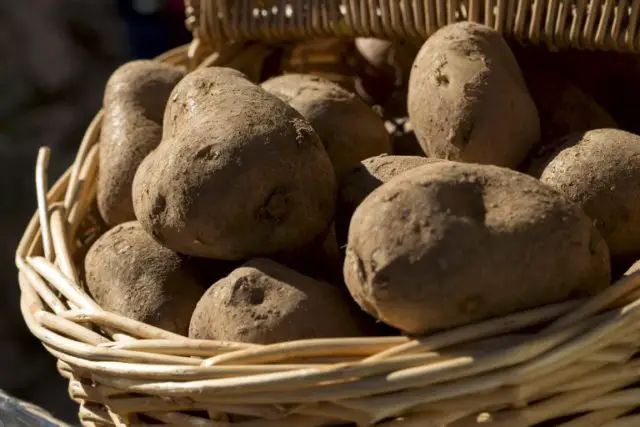
The coronavirus pandemic addresses the fragility of our globalized food system with Industrial agriculture hanging by a thin thread, this presents an opportunity to transition to Agro-ecological practices.
The global crisis reveals multiple deep-rooted problems in the world food system, including disparities in land tenure, the potential for disrupted supply chains, labor exploitation, and the continuing struggle for food sovereignty. The crisis forces us to challenge the current food paradigm and imagine a viable, resistant and regenerative system, based on equity, justice and cooperativism.
Events reflect the natural world, mimicking loss through human lives. We are not only losing loved ones, but we are on the brink; capitalism itself seems to be in deep crisis. Could this presage a transformation and a rebirth process? Perhaps we should let what no longer serves us or the planet die and propagate a system based on reciprocity. Whether it’s a process of death, rebirth, or both, the virus-catalyzed crisis calls for radical transformation.

Agroecology denounces extractive industrial agriculture and promotes agricultural systems that work in harmony with pre-existing ecologies. Using science, we seek to create agricultural systems that enhance biodiversity, promote closed-loop systems, increase soil health, and eliminate the fragile dependence on external synthetic inputs. By creating a movement, our simultaneous goal is to imagine and implement a food system that is economically viable and socially fair.
According to scientist Alexander Wezel, agroecology emerged as a modern movement in response to the Green Revolution. The latter promoted non-ecological, chemical-intensive and top-performance strategies based on specialization and monoculture.
Agroecology has become a global movement backed by peasants, farmers, and activists seeking to secure food sovereignty, land reform, the establishment of cooperative models, the protection of biodiversity, and much more. We must remember that Agroecology has been around since immemorial times, but without the current banners, rather done by indigenous and peasant communities that have long cultivated in ways that nurture both people and land.
This crisis calls humanity to connect deeply with the essence of life. We are forced to remember what it really takes to provide livelihood as the disguise of 21st century capitalism begins to fade. The courage to lay our hands on the ground, honoring that sovereignty is tied to our food and medicine begins to emerge.
However, access to land is a great privilege, colonial legacies and systemic inequalities have prevented many from accessing land, an associated crisis that stands out as world food prices soar and grocery stores become a battleground for germs. We are seeing an increase in small gardens around the world, reminiscent of the “gardens of victory” or “gardens of war” implemented during World War I and World War II by various countries to help complement the public chain of food supply.
There is an ongoing fight for food sovereignty within communities located in geographic areas where there is a lack of access to healthy food. These communities now also face greater health risks when people have to travel longer distances to find nutritious food, leaving them more exposed and susceptible to the virus. In New York City, community gardens have been declared to pose a major health risk and the city has blocked access for residents.
Food insecure nations are forced to reconcile with disrupted supply chains. Some countries, such as Argentina, have established decrees that propose price limits for certain food and hygiene products, with the aim of guaranteeing food security, as prices rise rapidly.
Kazakhstan has banned the export of key food products to guarantee a domestic supply. However, what about small nation states that have changed their traditionally diverse farming systems to meet the demands of the global market, resulting in extensive monoculture production backed by neoliberal policies? All of this contributes to the lack of nutritious food available locally for many citizens.
From the fields to grocery markets, people on the fringes of society, whose work has often been devalued, are now considered essential front-line workers. Those who are behind the scenes in food production and distribution are the most affected by this crisis, as they are rapidly falling ill.

In the United States, a study by the Department of Agriculture states that approximately half of all farm workers, over a million, are undocumented immigrants. The immigration status of these valued workers will prevent them from accessing the federal government’s $ 2 billion pandemic aid package, while their work will still be considered essential.
In Romania, Eco-Ruralis, a local farmer association, has organized a grassroots effort to distribute vegetable seeds to more than 3,000 families, recognizing that sovereignty is linked to the production of diverse and nutritional foods.
More than ever, Agroecology offers a possible solution to this multifaceted crisis. Farmers who depend on external inputs for production now face a major threat, as industries freeze operations and supply chains are disrupted.
The Agroecological principle of creating farms with closed-loop systems can promote a strategy that makes local farms a vital asset in providing food and promoting autonomy. At the end of the day, it is not the big factory farms that feed the world. A 2019 study by the United Nations World Food and Agriculture Organization concluded that 80% of the world’s food is produced by small family farms.
The Pandemic forces us to support our local economies and stand in solidarity with these small farmers, securing their livelihoods and promoting the construction of resilient bioregional food networks. This is not the time to accumulate supplies, but to turn to our neighbors and offer them support.
The inequalities that are emerging have long existed within the food system, but now we have the opportunity to dismantle these injustices and sow a resistance movement that fights for Agroecology and a more caring world.

